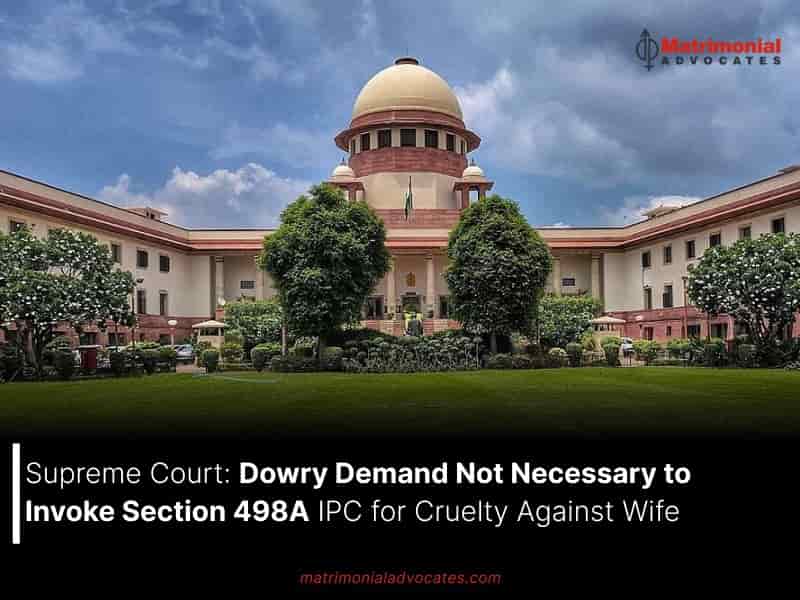
The absence of an explicit dowry demand does not negate the applicability of the provision where acts of physical violence and mental distress have been demonstrated, the Court held.
The Supreme Court has clarified that a dowry demand is not a prerequisite for invoking the offence of cruelty against a wife under Section 498A of the Indian Penal Code (IPC).
A Bench comprising Justices Vikram Nath and Prasanna B. Varale underscored that the core element of the offence under Section 498A IPC is cruelty itself, rather than the presence of a dowry demand.
Accordingly, the Court held that even if no explicit demand for dowry is made, the provision still applies if instances of physical abuse or mental harassment are proven.
“The presence of a dowry demand is not a prerequisite for establishing cruelty under the Section,” the order dated December 12, 2024 said.
Presence of a dowry demand is not a prerequisite for establishing cruelty under Section 498A IPC.
Supreme Court
The Court was hearing an appeal challenging the Andhra Pradesh High Court’s decision to dismiss proceedings under Section 498A against Aluri Thirupathi Rao.
Rao was accused of physically assaulting his wife and forcing her to leave the matrimonial home. Despite multiple attempts to return, she was allegedly denied re-entry.
After an investigation, the police filed a charge sheet against Rao and his mother.
They later approached the High Court, which invoked its powers under Section 482 of the Code of Criminal Procedure (CrPC) to quash the case.
The High Court appeared to accept the accused’s argument that the allegations did not constitute an offence under Section 498A IPC, as there was no claim of dowry-related harassment.
The wife later challenged this ruling before the Supreme Court.
Before the Supreme Court, the accused argued that the explanation to Section 498A IPC requires a dowry demand for an act to be considered “cruelty” under the provision.
However, the Court examined Section 498A and noted that it provides a broad and inclusive definition of ‘cruelty,’ encompassing both physical and mental harm to the woman’s body or well-being.
“In addition, it covers acts of harassment designed to coerce the woman or her family into fulfilling unlawful demands for property or valuable security, including demands related to dowry. Notably, the provision also recognizes acts that create circumstances leading a woman to the point of suicide as a form of cruelty,” the Court said.
The Court further noted that Section 498A IPC defines two distinct forms of cruelty: Clause (a) of the explanation addresses physical or mental harm, while Clause (b) pertains to harassment linked to unlawful demands for property or valuable security.
It stressed that these provisions should be interpreted separately, affirming that a dowry demand is not a prerequisite for establishing cruelty under the Section.
“The definition of “harassment” under the Explanation to Section 498A is specifically outlined in clause (b), independent to the “wilful conduct” described in clause (a), thus necessitating a separate reading of the two. It is significant to note that the inclusion of the word “or” at the end of clause (a) clearly indicates that “cruelty” for the purposes of Section 498A can either involve wilful conduct that causes mental or physical harm or harassment related to unlawful demands, such as dowry,” the order said.
As a result, the Court set aside the High Court’s order and reinstated the criminal proceedings under Section 498A.





